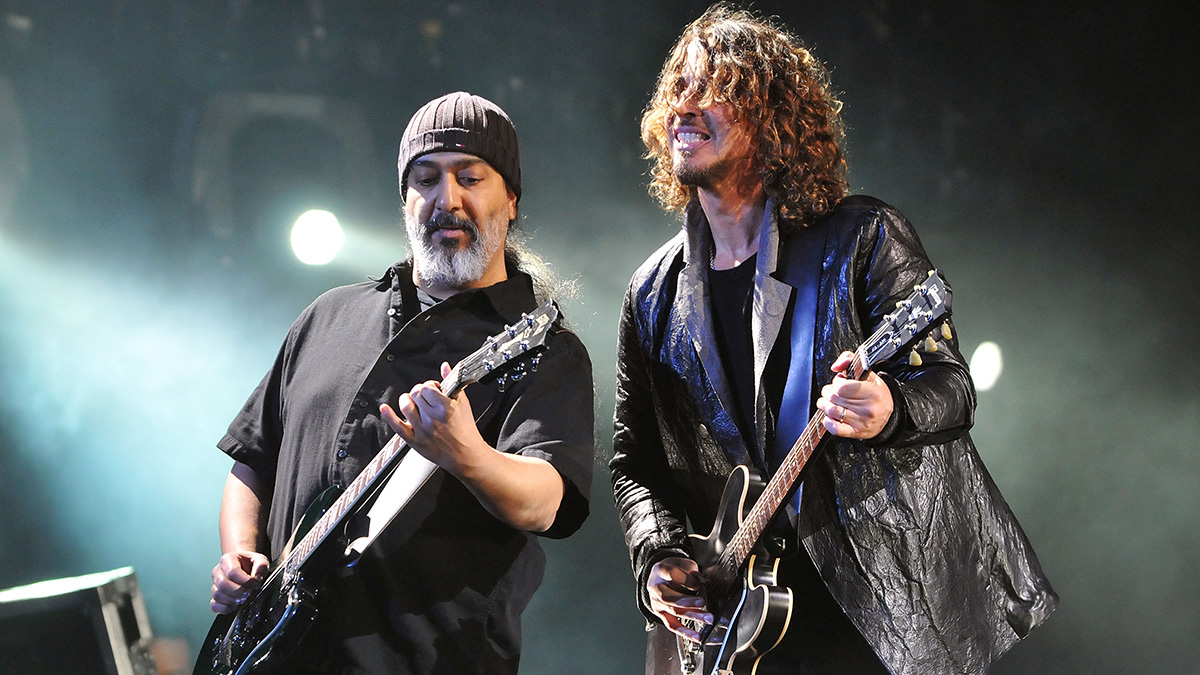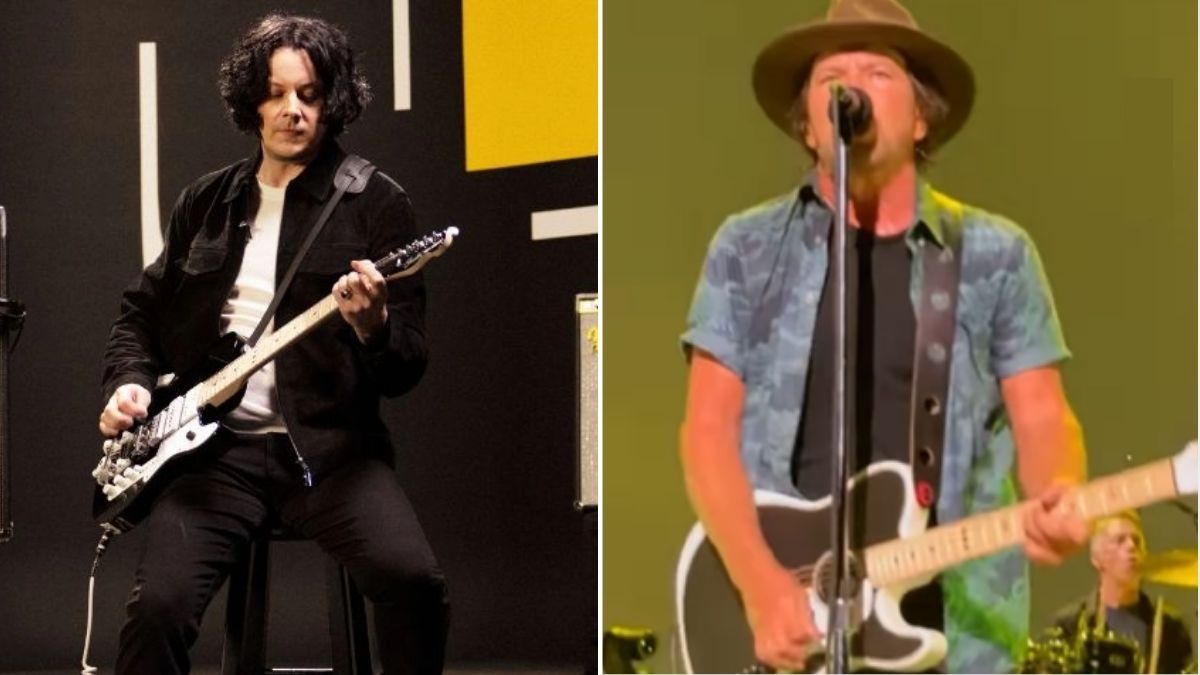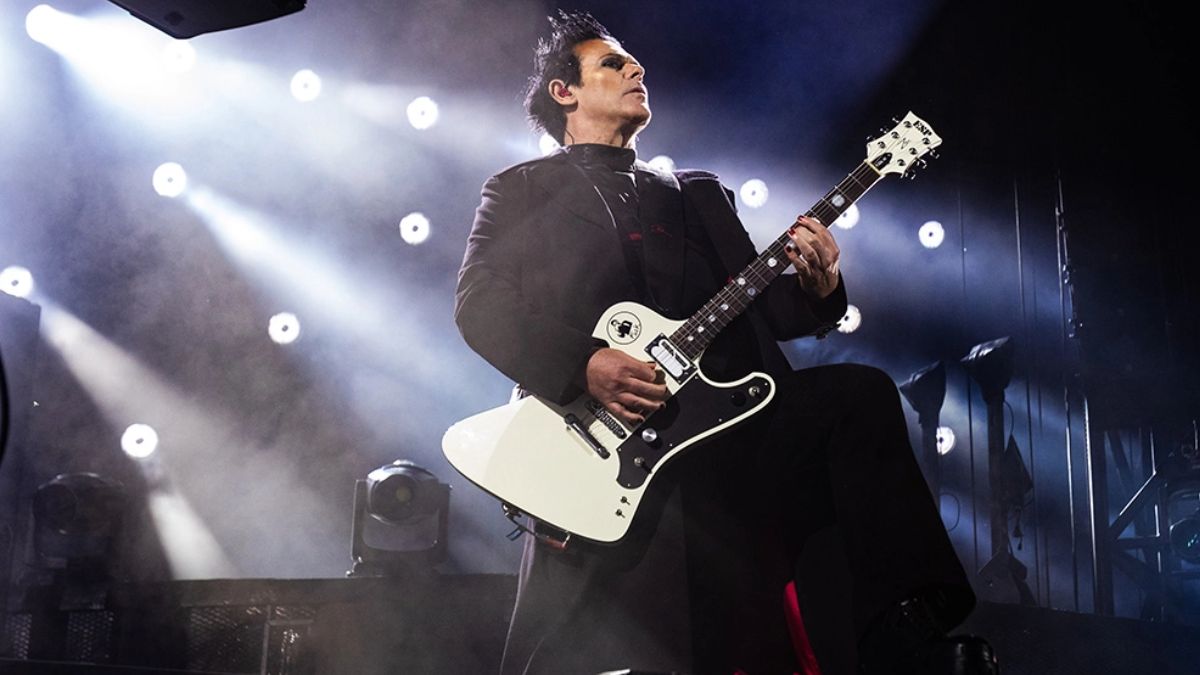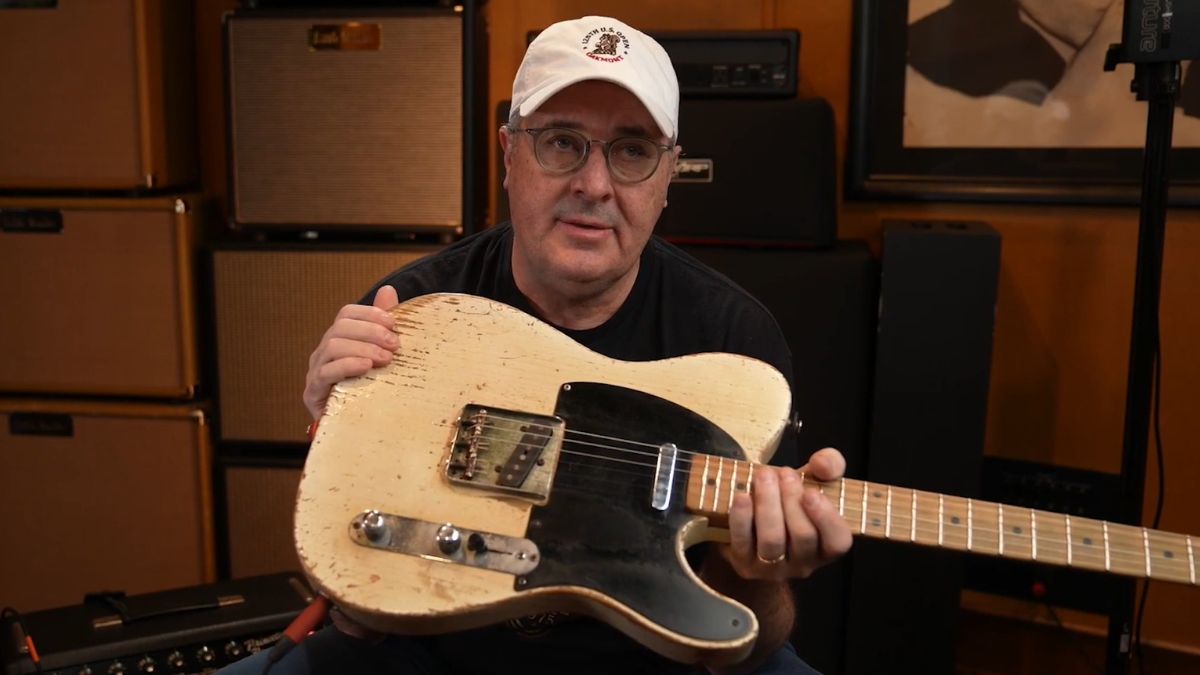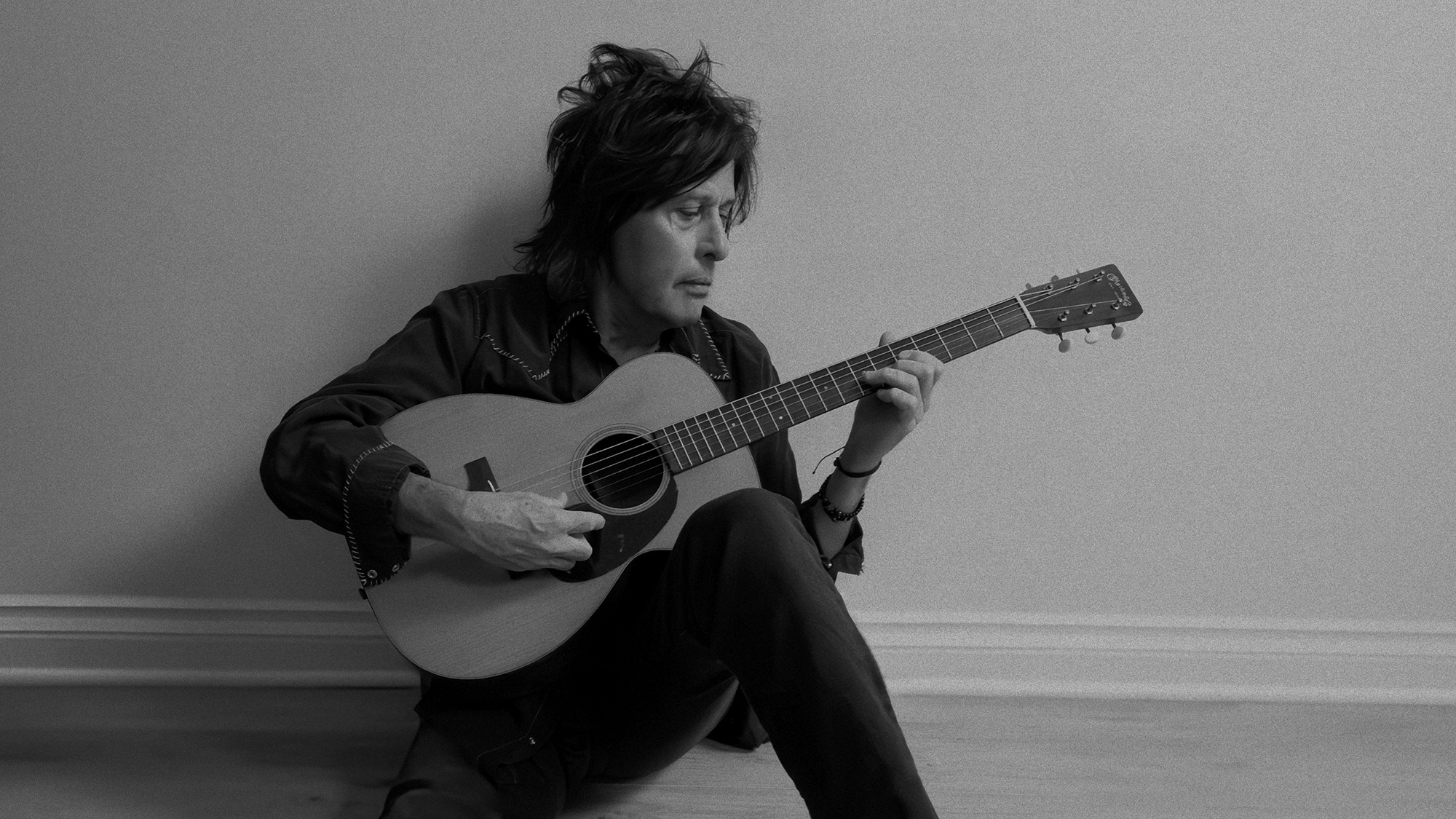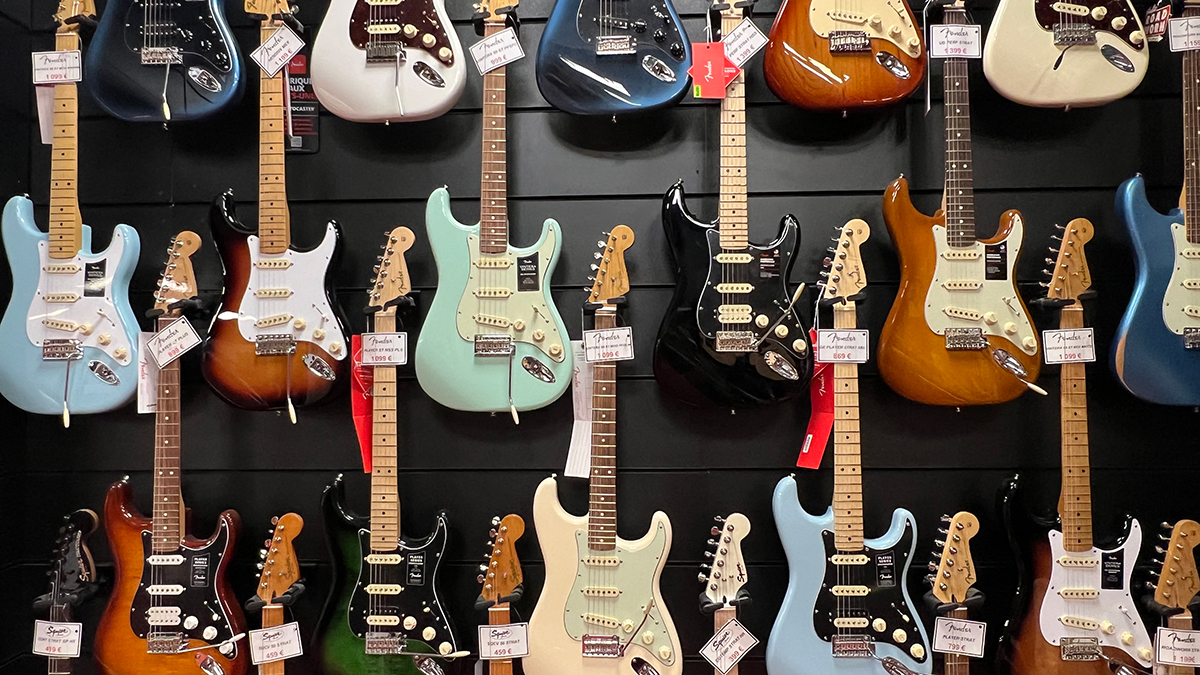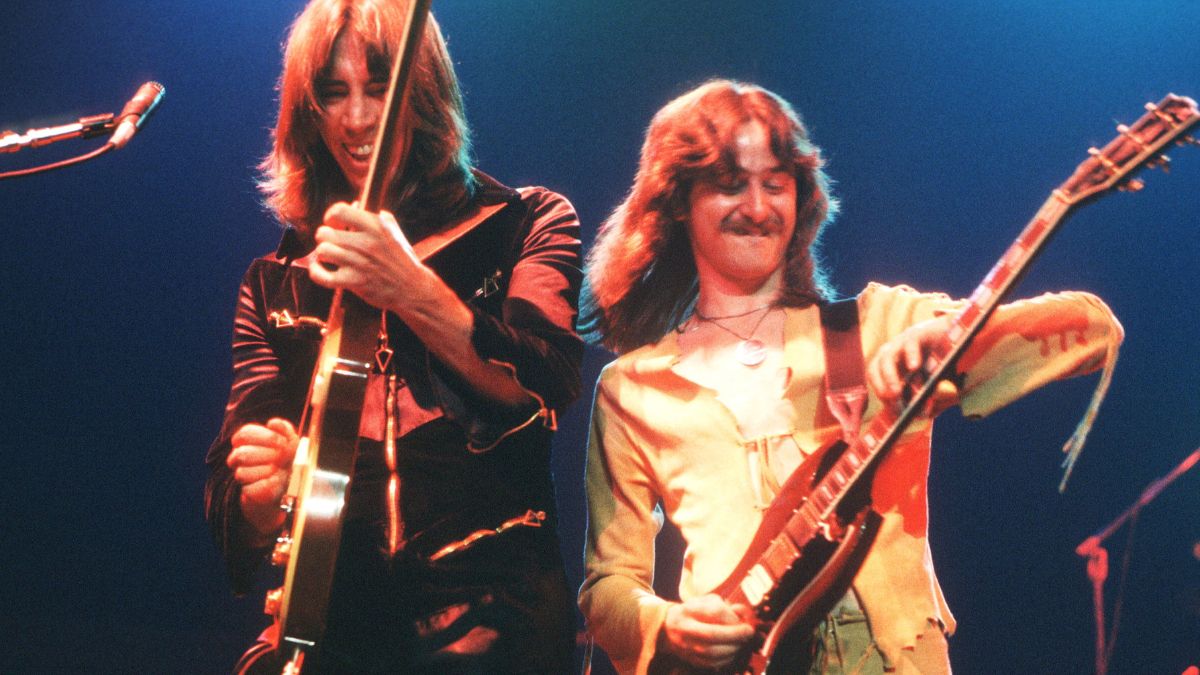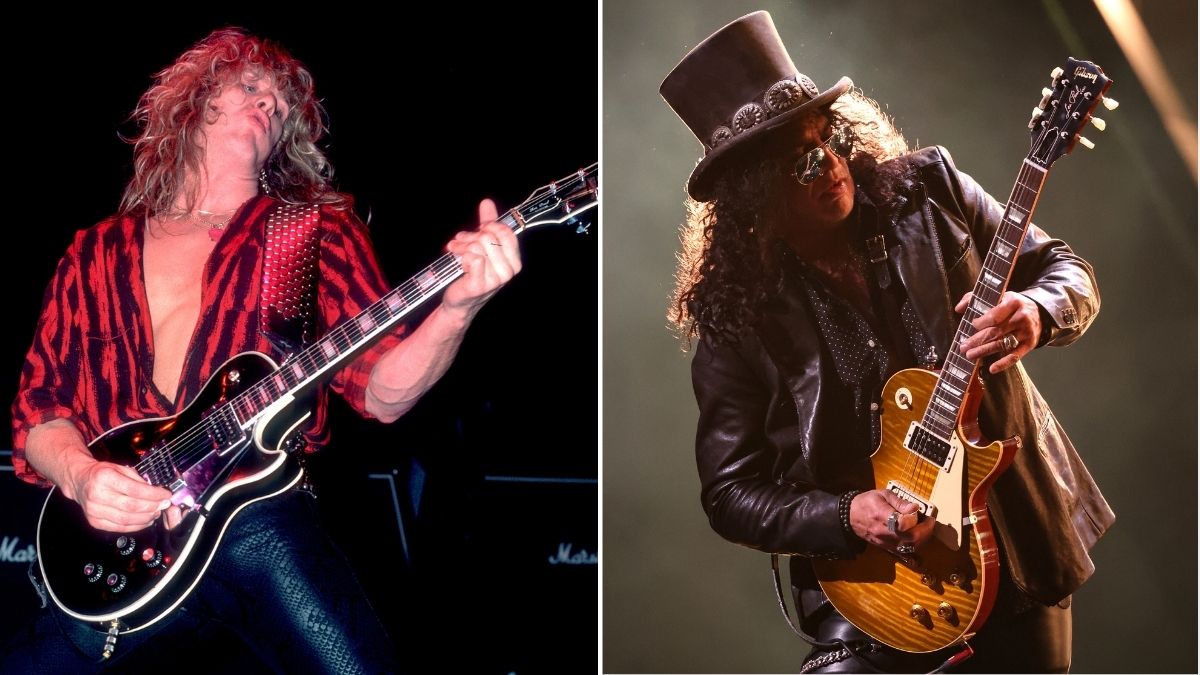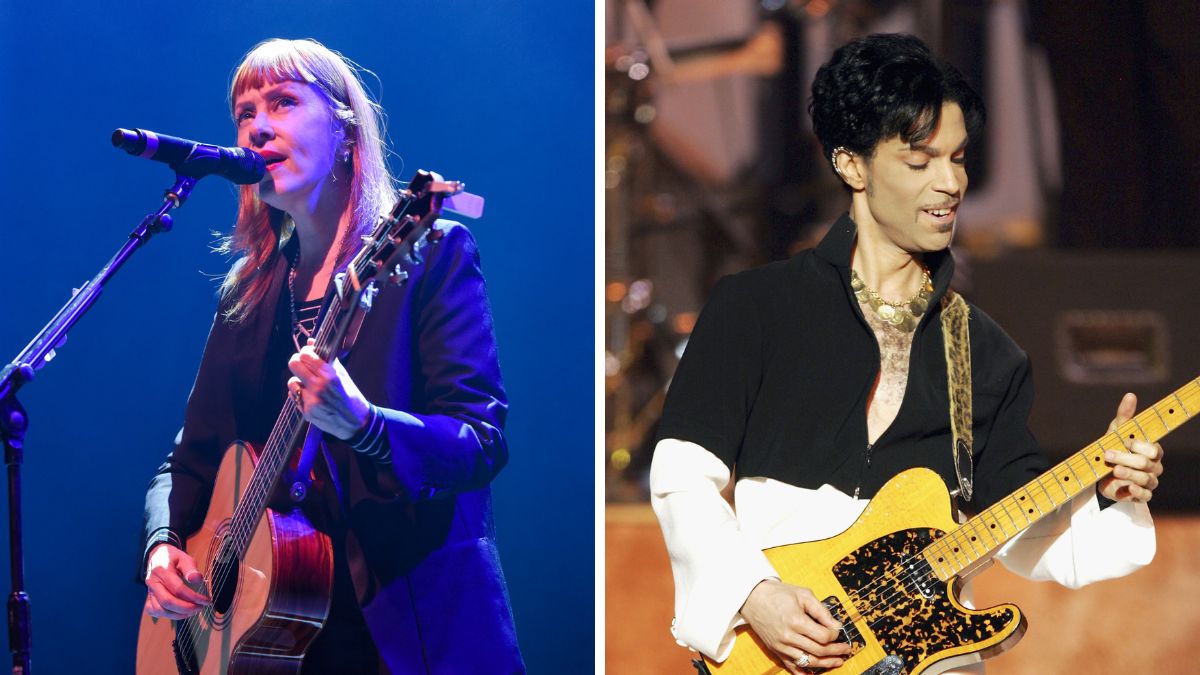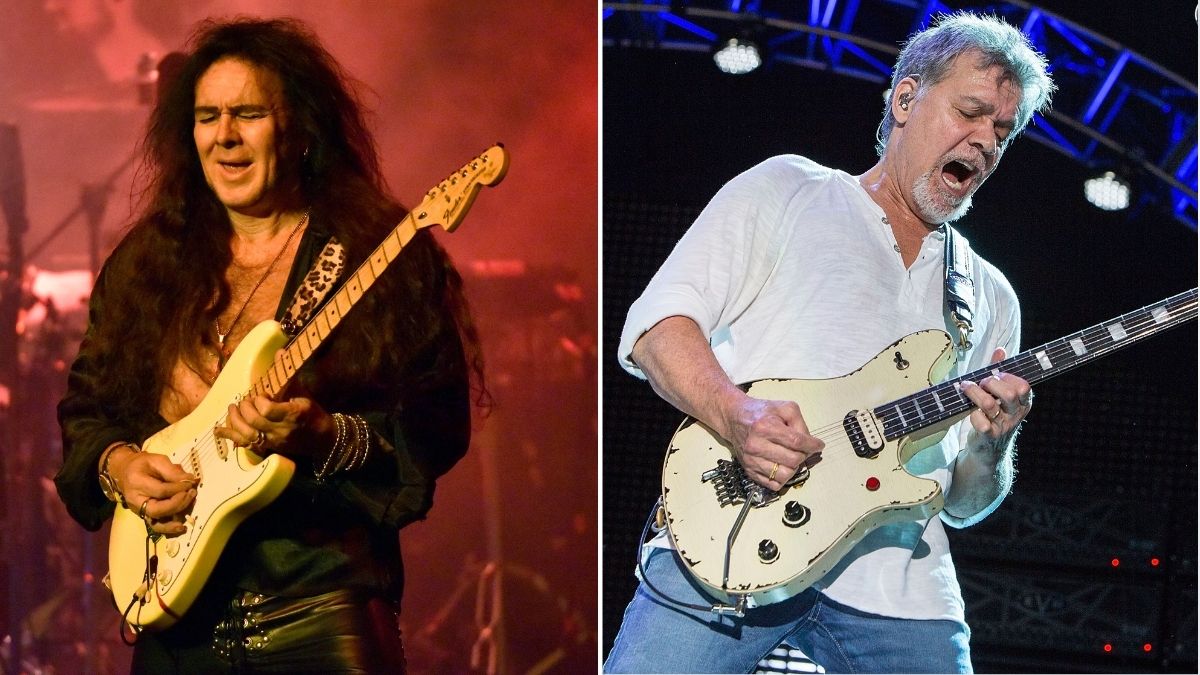Jeff Lynne Discusses the Rebirth of ELO and New Album, 'Alone in the Universe'
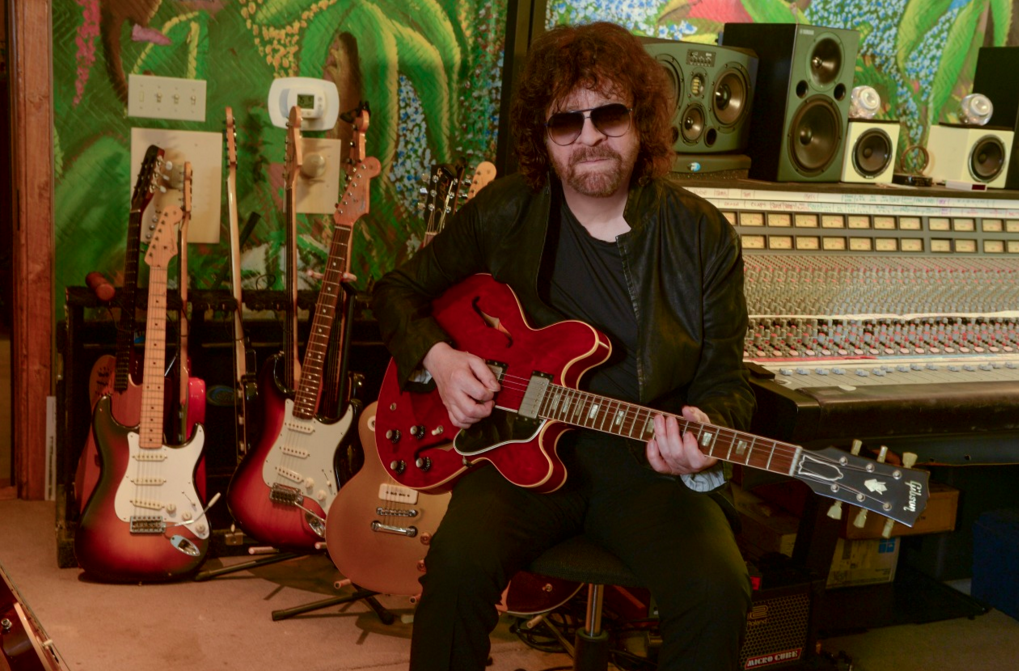
“It felt absolutely amazing,” says Jeff Lynne of Electric Light Orchestra’s return to the concert stage last year in front of 50,000 fans in London’s Hyde Park.
“I never dreamed it would be like that. I was worried there wouldn't be anybody there by the time we went on because we were last—top of the bill and all that. But once we got on stage, it was absolutely fantastic. The crowd just loved it. And it was just so much fun to do because they loved every song, and they sang along with every one of them, louder than me.”
It also prompted Lynne, who has spent most of the three decades since ELO's demise behind the mixing desk as a producer, to dust off his Les Paul and make a new album.
“I was going to do a new album anyway but, after the Hyde Park show, I was really inspired, and I figured at least all those people, those 50,000, would buy a copy,” Lynne, seated in the control room of his home studio in Los Angeles, says with a laugh. “So I wanted to do it for them, in a way, because they were so nice and lovely and enjoying themselves so much and that inspired me to make get back in the studio.”
The result, Alone in the Universe, out November 13, is full of the trademark, instantly hummable tunes Lynne has always seemed to deliver effortlessly.
When I last talked with Lynne in 2012, he told me he had a few originals finished and was toying with the idea of making a new ELO album. But, he says, only the lead single, “When I Was a Boy," is left from those days, with the bulk of the writing and recording for the album taking place after his Hyde Park appearance, which was recently released on a DVD that includes the excellent Mr. Blue Sky documentary as a bonus.
“Back when we last spoke I had just a little outline of ‘When I Was a Boy,' that was it,” Lynne says. “I had a couple of other bits, but none of them were even the shell of a song yet. They were just little worm ideas. So there’s some bits on the album that come from ideas that might be a couple of years old, or three maybe, but the whole album was basically built on that festival appearance, really. That's how it came about.”
Get The Pick Newsletter
All the latest guitar news, interviews, lessons, reviews, deals and more, direct to your inbox!
“When I Was a Boy” will be instantly recognizable to fans of ELO's late-Seventies heyday. It’s chock full of Lynne’s trademark orchestrated guitars, while hearkening back lyrically to his days growing up in post-war Birmingham, England.
“That song is very meaningful to me, because it contains the actual truths about how I felt about music from when I was little,” Lynne says. “But it’s also a story about any kid growing up wanting to play the guitar. It's not just about me, anybody could have that story.”
After ELO ended in 1986, Lynne put down his guitar and songwriting notebook and spent his time learning the studio. During dinner one night, Welsh guitarist Dave Edmunds told Lynne that former-Beatle George Harrison, who hadn’t made an album in nearly five years, was interested in meeting him. Harrison was thinking of making a new album and was curious if Lynne and he would get along. Edmunds asked if he could pass along Lynne’s number to Harrison. Lynne, not surprisingly, said yes before Edmunds’ question had even passed his lips.
For the next 10 years, Lynne and Harrison became almost inseparable. They recorded Harrison’s 1987 comeback album, the global chart-topper Cloud 9, founded the Traveling Wilburys with Bob Dylan, Tom Petty and Roy Orbison and found time to work on multi-platinum records by Petty and Orbison, among others. Then, in 1994, Lynne got the call of a lifetime, when he was tapped to produce “Free As a Bird” and “Real Love," the first new music recorded by the Beatles since 1970, for their Anthology project.
“It did seem like a dream, yeah,” Lynne says, with his typically deadpan delivery.
Since then, Lynne has produced a long list of albums, preferring to stick to the studio rather than perform live.
“He’s the only guy I know who makes music every day,” says Mike Campbell, the guitarist for Tom Petty and the Heartbreakers, who’s worked with Lynne regularly since 1987, beginning with Petty’s Full Moon Fever album. “He’s happiest that way, I think.”
“It's not a problem really, because I love recording,” Lynne says. “I love the studio. I love doing the instrumental parts and I love playing instruments of any kind. So it's never, ‘Oh, better get on with that now.’ I do it without thinking about it. It's only the words that get me a bit lazy, so I just leave those till the end.”
As for the writing process that has delivered such memorable gems as “Evil Woman," “Do Ya," “Mr. Blue Sky," “You Got It," “Free Fallin’” and “Not Alone Anymore," Lynne says it’s just part of his everyday life, though he’s as prone to the hurdles inherent in songwriting as the rest of us.
“What I like to do is always have a few songs in the works; bits and parts of songs, and bits I need to write words for. I usually have three or four going—though I will tell people I'm only working on one—and as soon as I get the words, for instance, which is always the last thing I get, I focus on that one and record it.
"But writing the words is like torture, really. Because I just love music so much, the words seem kind of unnecessary to me. I just like the tune and the chords. In fact, I never even listen to the words of a song for probably the first 10 listens. I don't even know what they are on some of the songs that are my favorites, because all I listen to is the melody and the chords and the bass line. So when it comes to writing the words, it's a big problem, because I really have to chain myself down to the desk. But whenever I'm doing a lot of them at once—once I've got the words for one—I’ll stick with that one until it's finished. I'll never put that one away; I'll finish it.”
Alone in the Universe was made in Lynne’s home studio. But it’s not just any home studio, of course.
“Every room has six mic lines going to the desk in the control room,” he says with a chuckle. “I use every part of the house, because every room sounds different. I use that to create a sound that’s more live, and that breathes. It's totally natural for me because, since day one in 1968 when I first got my B&L tape recorder, which did sound on sound, I was used to working by myself. I started in my mom and dad's front room in England and that's how I learned how to record all the bits myself and where to put the mics and how to get the sounds that I was looking for; even how to overload things.
"So I've been doing that ever since, and I've always done it the same way. It’s only the times when I've been in a real studio I haven't enjoyed it as much, because it doesn't sound as good as an ordinary room. I always found that studios have been messed about with too much. There's no sound left in them, and it's just kind of drab. So, by using every room in my house, that's what makes it sound live. All the different rooms are all singing along because I like to involve the room a lot in the actual sound of the instrument and the final result is a lot of live room sounds going on all at once.”
Lynne made the leap to Pro Tools more than a decade ago when it “suddenly sounded really good," which made his process of “starting with a click and ending in a bang," layering instruments beginning with acoustic guitars, smoother than ever. He insists he couldn’t go back to the old ways of doing things.
“I could never go back to tape, ever,” he says of the days of 2-inch, 24-track tape machines. “I couldn't do it. I wouldn't do it any other way than Pro Tools, actually.”
Lynne has high hopes for Alone in the Universe but is adamant he never let the specter of ELO's former glories hang over the proceedings.
“I never really thought about comparing it to the old stuff,” Lynne says. “I just thought about making a new album. I never tried to compare it.”
And, while he’s never been a fan of playing live or, especially, being on the road, Lynne says he’s hopeful the U.S. will get to see ELO soon.
“Well, I do hope so,” he says, almost matter-of-factly. “We've been talking about it. We'll just have to wait and see. I wouldn't say definitely, ever, about anything, because things can change. But as far as things look right now, we have plans to play, yes.”
Photo: Rob Shanahan
Jeff Slate is a NYC-based solo singer-songwriter and music journalist. He founded and fronted the band the Badge for 15 years beginning in 1997 and has worked with Pete Townshend, Earl Slick, Carlos Alomar, Steve Holley, Laurence Juber and countless others. He has interviewed and written about everyone from the Beatles and Kiss to Monty Python and rock musicals on Broadway. He is an avid collector of rock and roll books and bootlegs and has an encyclopedic knowledge of all things Dylan and the Beatles. For more information, visit jeffslate.net.
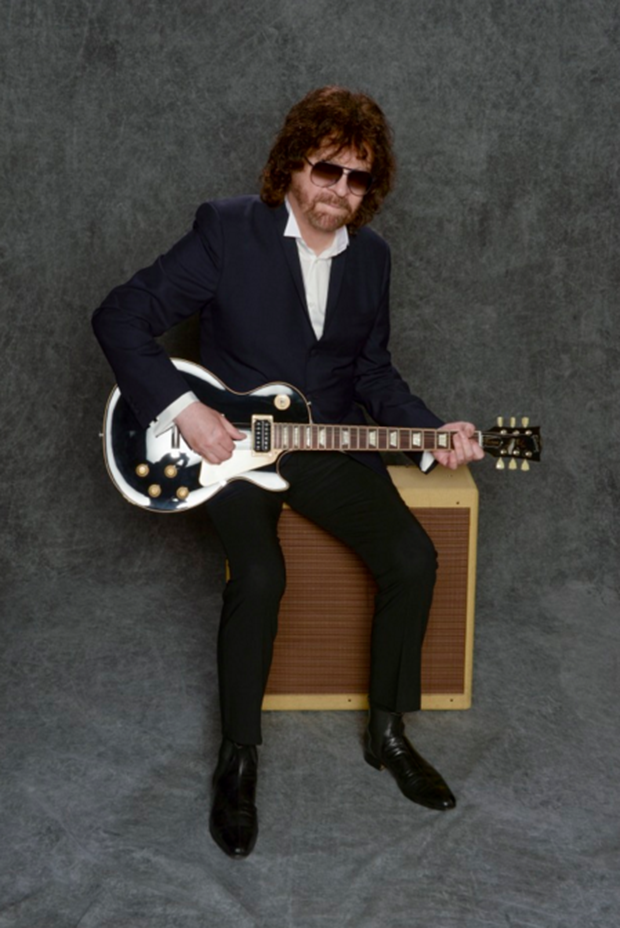
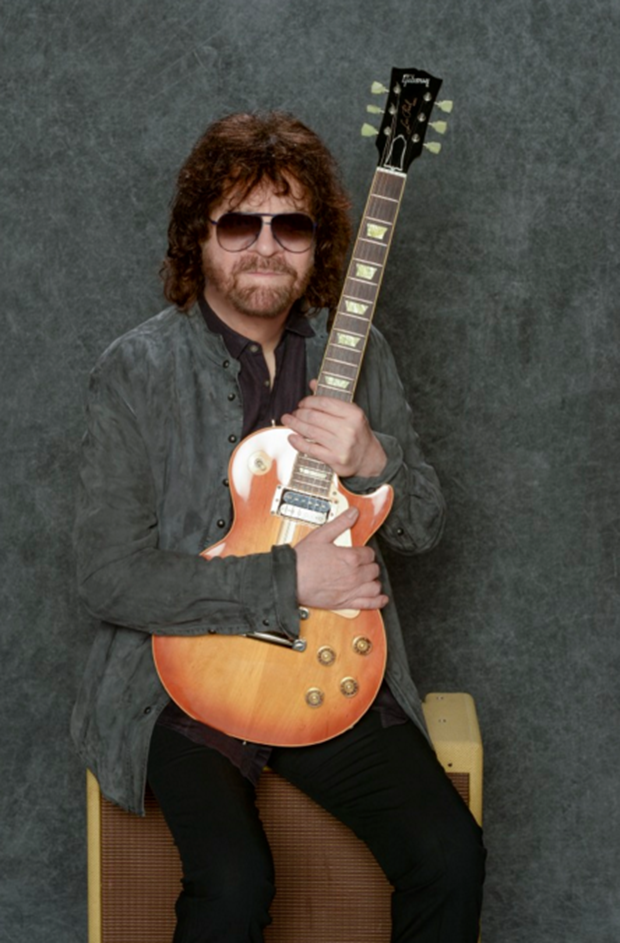
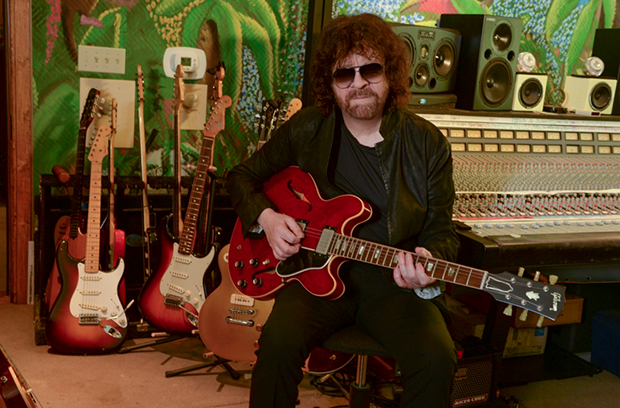
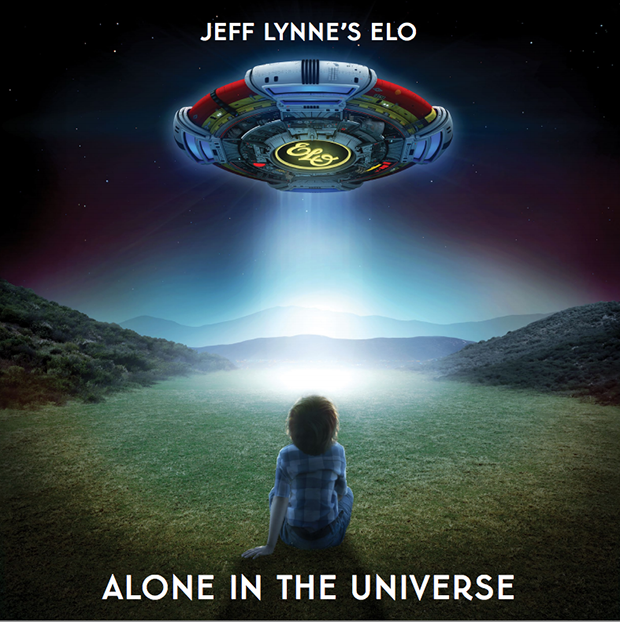
“What started out as an instrumental album quickly changed”: Stone Temple Pilots’ Dean DeLeo announces One More Satellite – a new collaborative project that stars a host of special guests
“This song depicts all of the things Joe and I loved about pounding rock ‘n’ roll and the glorious guitar”: The SatchVai Band's second single is an ode to the instrument that made them famous – and it features Glenn Hughes on vocals
